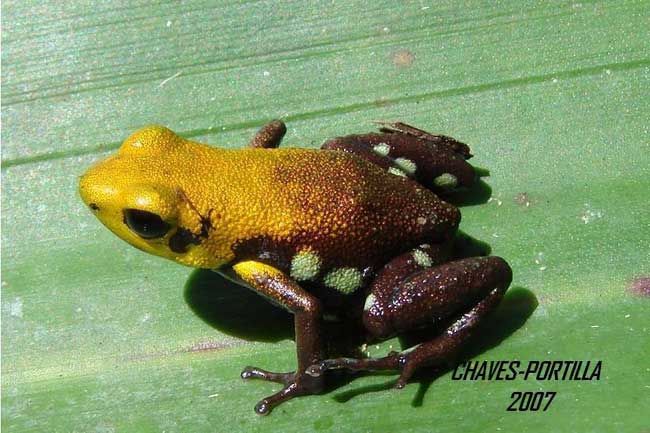Poisonous 'Golden Frog' Discovered

Get the world’s most fascinating discoveries delivered straight to your inbox.
You are now subscribed
Your newsletter sign-up was successful
Want to add more newsletters?

Delivered Daily
Daily Newsletter
Sign up for the latest discoveries, groundbreaking research and fascinating breakthroughs that impact you and the wider world direct to your inbox.

Once a week
Life's Little Mysteries
Feed your curiosity with an exclusive mystery every week, solved with science and delivered direct to your inbox before it's seen anywhere else.

Once a week
How It Works
Sign up to our free science & technology newsletter for your weekly fix of fascinating articles, quick quizzes, amazing images, and more

Delivered daily
Space.com Newsletter
Breaking space news, the latest updates on rocket launches, skywatching events and more!

Once a month
Watch This Space
Sign up to our monthly entertainment newsletter to keep up with all our coverage of the latest sci-fi and space movies, tv shows, games and books.

Once a week
Night Sky This Week
Discover this week's must-see night sky events, moon phases, and stunning astrophotos. Sign up for our skywatching newsletter and explore the universe with us!
Join the club
Get full access to premium articles, exclusive features and a growing list of member rewards.
A new poisonous frog has been discovered by scientists in a remote mountainous region of Colombia.
The new frog, which measures almost 0.8 inches (2 centimeters) in length and has yellowish skin, was named the "golden frog of Supatá."
The scientists who discovered the tiny frog saw that it was similar to several other common species in the area. However, further review by experts at Conservation International, a nonprofit group aimed at protecting Earth's biodiversity, showed that the golden frog of Supatá is unique and found only within a 20-hectare area in Colombia's Cundinamarca region.
Colombia is one of the world's richest countries in terms of amphibian diversity, with more than 583 species.
Because the frog is only found in such a small area, very little is known about it. So far, scientists say it belongs to a group called poison dart frogs, known for toxins sequestered in their skin.
Study leader Oswaldo Cortes, a graduate student at La Universidad Distrital in Colombia, says the discovery highlights how little is known about the biodiversity of Earth and how many species are left undiscovered.
Many frog species in Central and South America have likely died out before they could even be discovered, as a result of the chytrid fungus that has been decimating amphibian populations all over the world.
Get the world’s most fascinating discoveries delivered straight to your inbox.
The finding was made as part of a survey supported by the Conservation Leadership Programme, a joint effort by BP, Birdlife International, Fauna & Flora International, Conservation International and the Wildlife Conservation Society.
- Amazing Animal Abilities
- Snakes, Frogs and Lizards: The Best of Your Images
- Images: New Amphibian Tree of Life
 Live Science Plus
Live Science Plus











